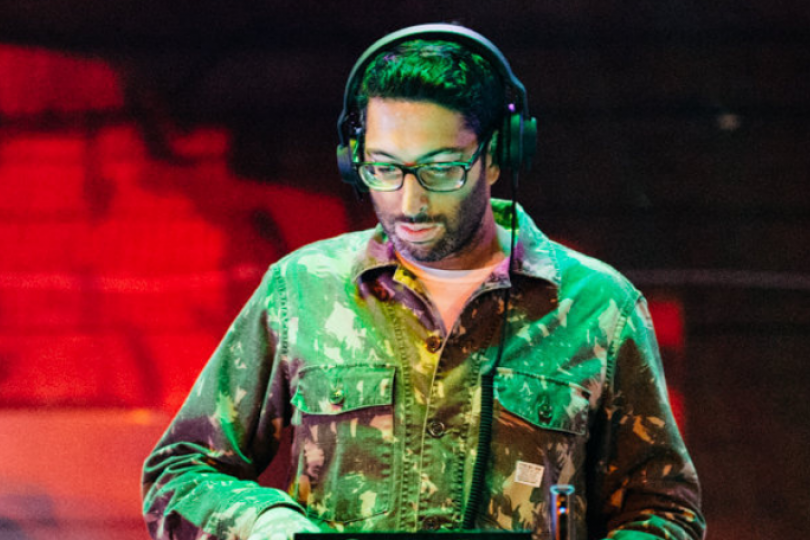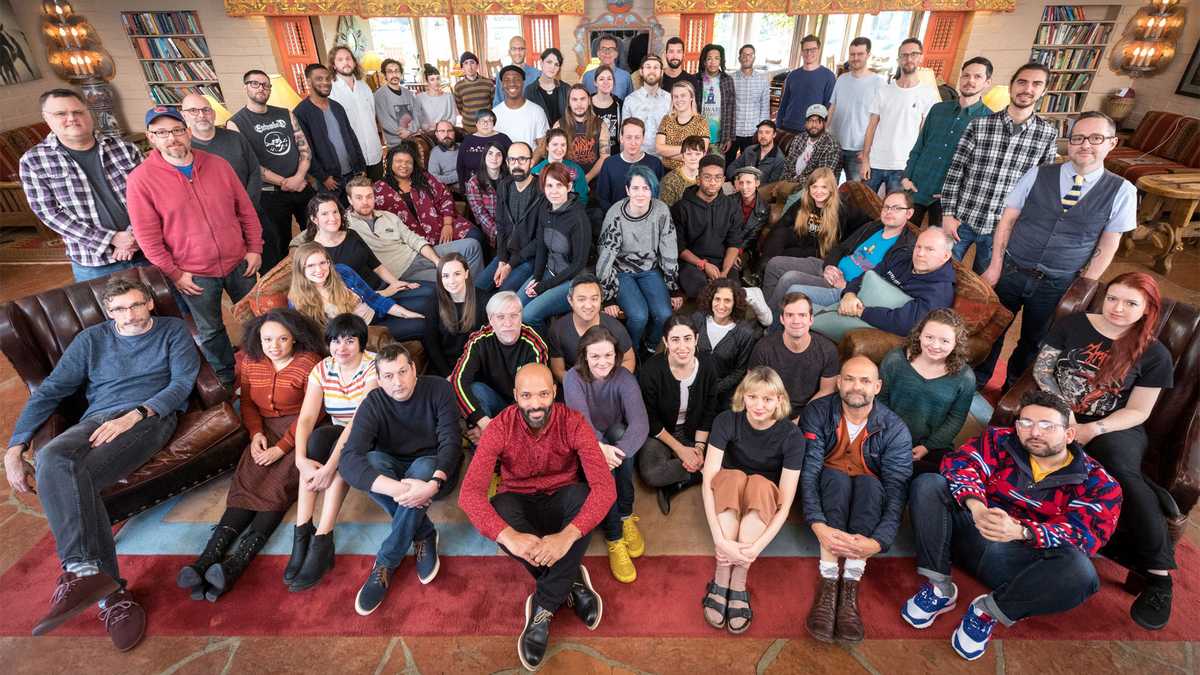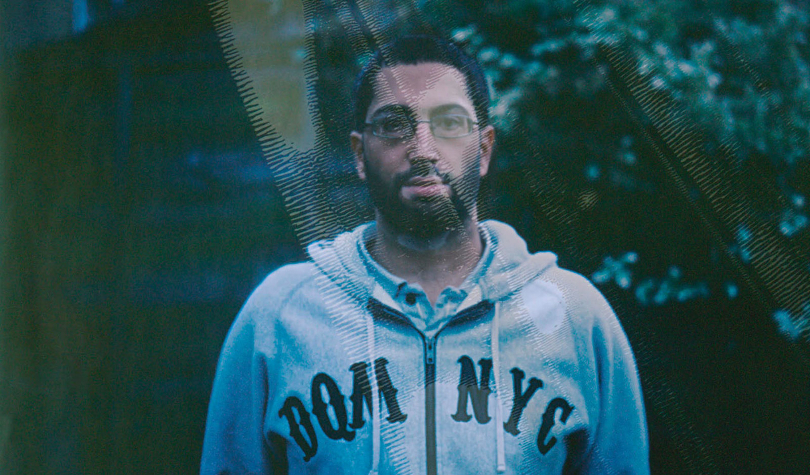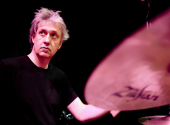
Aly Gillani (Bandcamp): Musicians and Fans Cannot Exist Without One Another
Musicians and music fans—one group cannot function without the other and vice versa. That's one of the mottos behind Bandcamp, an online platform for (not only) independent artists and small labels to sell music directly. How does Bandcamp support community building and connecting fans with musicians? How much music is sold through Bandcamp Daily? And how does a vinyl-pressing crowdfunding campaign work? A few questions for Aly Gillani, Bandcamp's representative for Europe.
Aly, how did you get into Bandcamp anyway?
I've been around indie music for the last 20 years, first as a DJ, then as a club promoter, and eventually I started my own small label First Word Records, which of course operated on Bandcamp. Then I met a few people who worked for Bandcamp. And eventually I started working for it as well. It's one of the few music platforms that I trust 100%.
What has Bandcamp given you personally and professionally? What do you think is the biggest added value?
I've always thought it was great that Bandcamp pays out money from sales directly, leaving Bandcamp itself with about 10 to 15 percent. Also, Bandcamp is a platform that enables you to approach your fans directly. We're constantly trying to improve this feature for artists. No other platform offers that—at least, none that I know of.
Bandcamp regularly announces Fridays when it gives 100 percent of all revenue directly to artists and doesn't take a fee. There have been several such days since March 2020. What's been the response?
It's been amazing. When we first got into it, fans globally sent $4.3 million to artists, which is 15 times the usual revenue per day. We repeated the campaign several times. The numbers have always been roughly the same, which is to say always just as high. Currently, we've paid out in the hundreds of millions of dollars through Bandcamp. Now, of course, is a crucial time to organize things like this. Artists need support more than ever. And it shows that artists and fans can't exist without one another. There's a symbiosis.
It's true that the music world is going through extremely difficult times. How do you think it will change when this all goes away?
It's hard to say. It's definitely going to change the live concert world. I worry a lot for independent clubs and promoters, because they are the backbone of any music scene. On the other hand, I want to believe that people will realise that it's necessary to support your favorite artists and that it should be done as directly as possible. Hopefully people will understand that music has an indisputable value. The situation where there was a general feeling that everything could be free was unsustainable in the long term. I believe Bandcamp will be part of that change.

How exactly will Bandcamp be part of the new music world?
Our business is founded on an "artist first" approach, so we want to continue to find ways to best support artists.
Bandcamp has recently expanded the platform to include other options such as crowdfunding. What's that all about?
About vinyl, for example. Artists can upload a digital version of an album to their Bandcamp and connect it to a vinyl crowdfunding campaign. If the 30-day campaign is successful, Bandcamp will simply press the vinyl and distribute it to the backers.
Crowdfunding is a matter of having a fan base and some interaction with the fans. Does Bandcamp then have the ambition to become a social network in the true sense of the word? What kind of a person is the typical fan on Bandcamp?
Absolutely—a fan account already makes possible to share with others what music I've supported recently. We want to help fans discover new music. In fact, we've found that one in three music purchases on Bandcamp is through tools like Bandcamp Weekly or Bandcamp Daily. A third of the music sold is unknown and new to listeners. And we definitely want to support that. The typical fan on Bandcamp? Probably an passionate music lover, haha.

The Bandcamp Daily and Bandcamp Weekly playlist is part of your business. How can I get on there as an artist?
Bandcamp Weekly is Andrew Jervis' radio show, it's not exactly a traditional playlist in this case. But Bandcamp Daily is a playlist with everything curated by our editors. How do I get on? Send a link (to bandcamp of course) and a few words about your music to editorial@bandcamp.com. We take pride in the fact that our editors honestly listen to every band that lands in their inbox. I generally recommend reading the "guide" section on bandcamp. There are many tips and tricks for artists there.
Do you work specifically with labels or bands? Is there any artist that you have helped to become famous?
Bandcamp Daily covers bands and artists in general of all genres and types. I honestly can't think of any specific example where we've helped someone to fame. Of course, Bandcamp alone is not enough for fame, but it can help significantly. Thank you so much for the opportunity!
Bandcamp was founded in 2008 by Ethan Diamond as an alternative to MySpace, which at the time offered profiles for musicians. While MySpace later faded into obscurity, Bandcamp has become a popular platform for independent musicians and small labels to sell their music directly, including merch or physical music. Bandcamp has survived the advent of streaming because it operates with a different philosophy - musicians and fans live in symbiosis and cannot function without interaction.
The importance of community togetherness has been demonstrated during this crisis year. Since March, Bandcamp has announced several days where it has given up its share of all merchandise sales. This allowed fans to support artists directly. Artists have sold hundreds of millions of dollars worth of music and merch. "It may sound too simple, but the best way to help artists is through direct financial support. We hope you will join us in supporting artists during these challenging times," founder Ethan Diamond wrote on the site at the time.
If you have found an error or typo in the article, please let us know by e-mail info@insounder.org.


